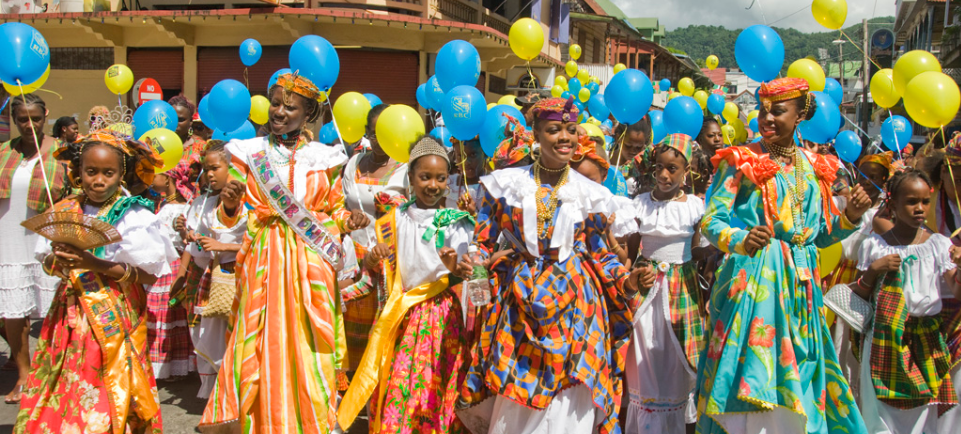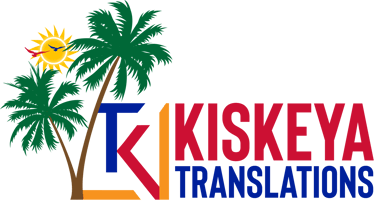
Professional language provider, delivering accurate and reliable interpretation and translation services across New England!
Celebrating Creole Language & Culture International Day
10/27/20233 min read


Introduction
Every year on October 28th, people around the world come together to celebrate Creole Language and Culture International Day. This special occasion is dedicated to recognizing and preserving the rich linguistic and cultural heritage of Creole-speaking communities across the globe. The Creole language, a unique and vibrant linguistic tradition, has its roots in the complex history of colonization, trade, and cultural exchange. In this blog, we will explore the significance of Creole Language and Culture International Day, the history and diversity of Creole languages, and the importance of preserving and promoting this invaluable cultural heritage.
The Significance of Creole Language and Culture International Day
Creole Language and Culture International Day serves as a reminder of the importance of cultural diversity and linguistic preservation. It is an opportunity for communities to come together, share their unique traditions, and educate the world about their history and culture. This day also highlights the need for language preservation, as many Creole languages are endangered due to factors like globalization and language assimilation.
The History and Diversity of Creole Languages
Creole languages, often referred to as "pidgins" or "creoles," have a fascinating history. They emerged in various parts of the world where people from different linguistic and cultural backgrounds came into contact. The development of Creole languages can be traced back to the times of colonization, the transatlantic slave trade, and other forms of forced migration and cultural exchange. In these complex settings, new languages arose as a means of communication between speakers of different native languages.
The diversity of Creole languages is astonishing. Creole languages have developed in regions as diverse as the Caribbean, Africa, Asia, and the Pacific. Each Creole language is unique, blending elements of different languages with its own distinct grammar and vocabulary. For example, Haitian Creole, based on French, and Jamaican Patois, influenced by English, are two well-known Creole languages that have gained recognition.
While the specific number of countries can vary based on how one defines Creole languages and the distinct varieties within each country, here is a list of some countries and regions where Creole languages are spoken:
https://en.wikipedia.org/wiki/List_of_creole_languages
The Importance of Preserving Creole Languages and Cultures
Preserving Creole languages and cultures is essential for several reasons:
Cultural Identity: Language is deeply intertwined with culture, and Creole languages are an integral part of the identity of the communities that speak them. Preserving these languages is a way to safeguard cultural heritage and maintain a sense of identity.
Linguistic Diversity: The loss of any language represents a loss of human linguistic diversity. Each language, including Creole languages, offers unique insights into the way humans communicate and interact with their environment.
Historical Significance: Creole languages provide invaluable insights into the history of colonization, migration, and cultural exchange. They serve as living relics that can help us understand the complex narratives of the past.
Social Inclusion: Promoting the use of Creole languages in education and public life can foster a sense of inclusivity and empower speakers of these languages, many of whom have been marginalized in the past.
How to Celebrate Creole Language and Culture International Day
Learn a Creole Phrase: Take the opportunity to learn a few phrases in a Creole language. This not only shows respect for the culture but can also be a fun and enriching experience (https://youtu.be/3rJzCzN4ttI?si=FYdQ24c191Wz9RMy).
Attend Cultural Events: Look for local events, concerts, or exhibitions that celebrate Creole culture and language. These events often feature music, dance, art, and traditional cuisine.
Support Language Preservation Initiatives: Many organizations work to preserve and promote Creole languages. Consider donating to or volunteering with these organizations to support their efforts.
Share Knowledge: Share information about Creole languages and their importance with friends and on social media. Raising awareness can help people appreciate the significance of these languages.
Here is a link to a YouTube channel you can subscribe to learn more about the Creole language and culture.
https://www.youtube.com/@haitiinter/search?query=creole
To learn more about the Haitian Creole language, check this YouTube video out: https://youtu.be/8IuQCyIdePE?si=GyGnbyTEZB1Ejuh7.
Conclusion
Creole Language and Culture International Day is a time to celebrate the rich linguistic and cultural diversity of Creole-speaking communities. It is also a reminder of the importance of preserving and promoting these unique languages and cultures. By recognizing and supporting the cultural heritage of Creole-speaking communities, we can contribute to the preservation of linguistic diversity and ensure that the stories of these communities continue to be told for generations to come.
Bridging Language Barriers for Communities across New England!
A Fully Insured Company!
